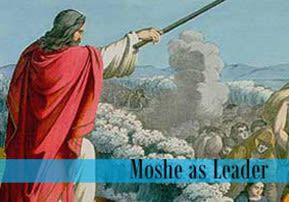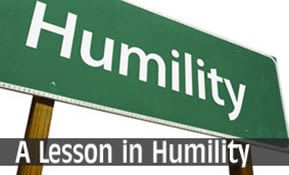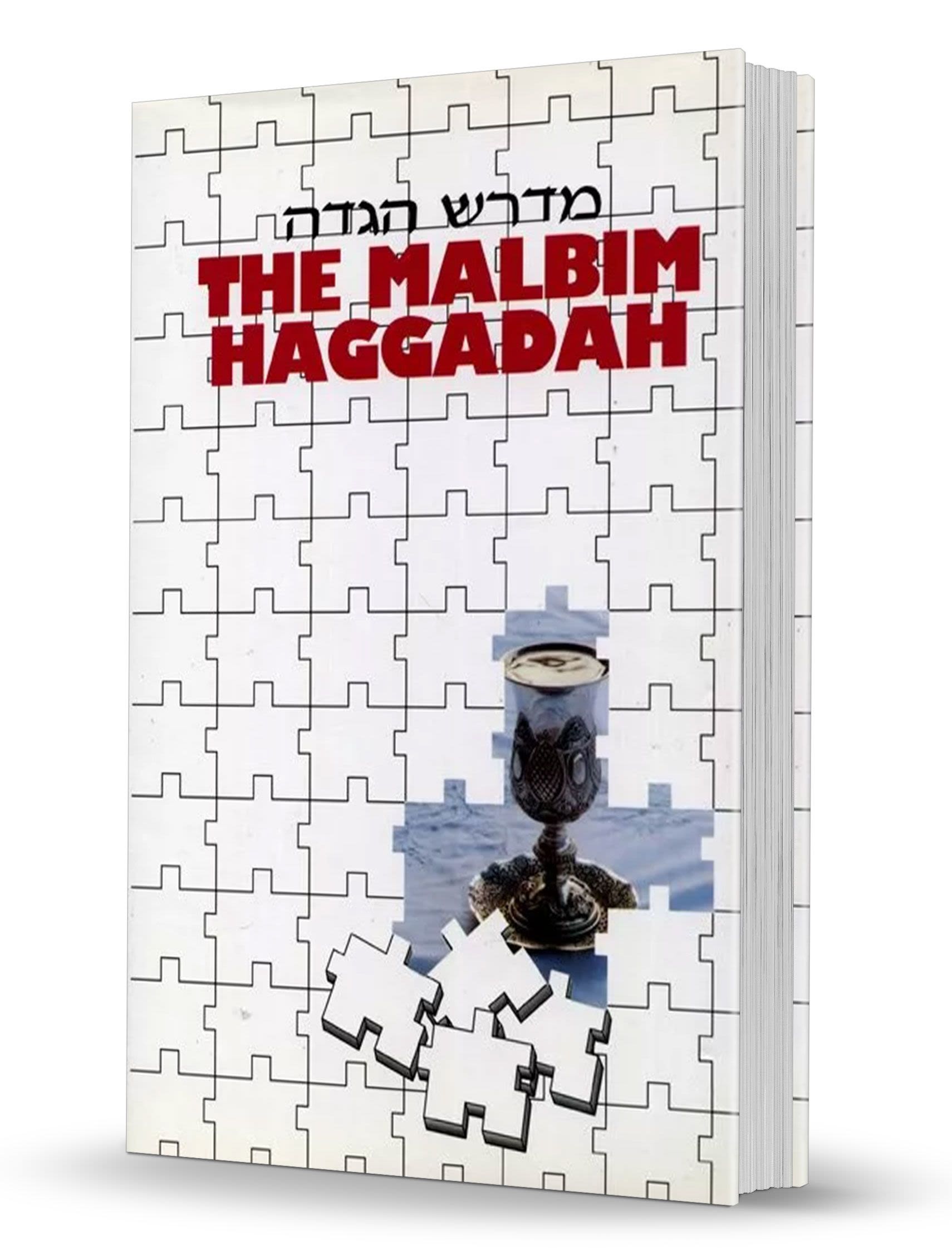
Shemot: Moshe as Leader
Why was Moshe chosen to lead to Jews? Among other reasons, Moshe directed his heart and mind the share the experiences of his brethren, with love and compassion...

Why was Moshe chosen to lead to Jews? Among other reasons, Moshe directed his heart and mind to share the experiences of his fellow Jews. Although he enjoyed the privileges of a palace upbringing, he empathized with the plight of those Jews who were enslaved. This quality of concern for others helped make him into an outstanding leader.
The Burning Bush
“An angel of the Lord appeared to him in a flame of fire from within the thorn bush, and behold, the thorn bush was burning with fire, but the thorn bush was not being consumed” (Shemot 3:2)
In Shemot Rabah, Chazal offer several explanations why God appeared to Moshe in a burning thorn bush:
1. The thorn bush is a seemingly insignificant creation, small and apt to cause pain with its prickles. God wanted to point out that even the “lowest” of creations can miraculously become inflamed if filled with the Divine spirit (a lesson that even the humblest person can make history if filled with God’s holy spirit), and to show His empathy for the “lowly.”
2 It hurts to remove one’s hand from the thorn bush, and not to touch it. Similarly, the Israelites were first welcomed in Egypt, but were later prevented from leaving.
3. Just as the bush was not consumed, the Jews of Egypt (and in subsequent generations) would never be destroyed.
Stretch
Pharaoh’s daughter went down to bathe, to the Nile, and her maidens were walking along the Nile, and she saw the basket in the midst of the marsh, and she stretched out her arm and took it” (Shemot 2:5).
The Torah says that Pharaoh’s daughter “stretched out her arm” and took the ark containing Moshe. Rashi explains that she stretched out very far and was able to miraculously save Moshe. The Kotzer Rebbe said that this teaches us that we must do everything in our power to save someone, even if we think it’s impossible to succeed. We can, with God’s help, often accomplish much more than we imagined.
Modesty
And Moshe said to God: “Who am I, that I should go to Pharaoh” (Shemot 3:11)
Moshe was humble, therefore he did not consider himself worthy of saving the Jewish people. God responded that this question was proof of his fitness for the task. God calls only on those who do not think overly highly of themselves. Thus, of all the mountains, God chose lowly Mt. Sinai as the place upon which to give the Torah, for while the higher mountains boasted of their heights, Mt. Sinai remained little in its own eyes. Similarly, since Moshe remained little in his own eyes, he was worth of leading the Jewish people. (Avnei Ezel)
United We Stand
“So, on that day, Pharaoh commanded the taskmasters of the people and their officers, saying, ‘You shall not continue to give stubble to the people to make the bricks like yesterday and the day before yesterday. Let them go and gather stubble for themselves. But the number of bricks they have been making yesterday and the day before yesterday you shall impose upon them; you shall not reduce it…’” (Shemot 5:6-8)
The Lelover Rebbe, Reb David, said that the Hebrew words for “do not continue” are usually spelled without an “aleph“. Yet, in this verse, it is spelled with an aleph. This changes the meaning, for it derived from the root letters meaning “to gather together”. This was also part of Pharaoh’s decree; not only were they not given straw, but they were commanded not to gather together in groups. Pharaoh wanted to destroy the unity of the Jewish people. He knew that as long as the Jewish people were together, they could withstand any harsh decree and would eventually triumph over their troubles.
***
“These are the names of the children of Israel, that came into Egypt with Jacob, every man and his household they came” (Shemot 1:1).
The second book of the Torah, Shemot, gives us an account of the suffering and the enslavement of the Jewish People in Egypt. It relates how they eventually won their freedom and were released from their captivity.
The Torah begins its account of the suffering in Egypt by listing all of the names of the twelve sons of Yaakov (Jacob), the holy tribes of Israel. For that reason, this book is called Shemot – which literally means “names.” Why? Each one Yaakov’s twelve sons attained a very high level of joy and holiness. Each them possessed unique and special talents for rectifying the world. Each of their names indicates their special talents in spreading joy.
For that reason God caused Yaakov and his twelve sons to come to Egypt. They arrived in Egypt just prior to the enormous suffering of their descendants. They were able to lay the ground-work for the redemption by spreading holiness and the joy of knowing the existence of God.
Because of this, the Jews were able to survive their slavery. The forces of evil try to enslave and trap a person by demoralizing him and breaking his spirit, forcing him into depression.
The more depressed a person becomes, the more he pushes the Divine Presence from himself, making his suffering worse. This is exactly what the Egyptians did to the Jews in Egypt. They pressured them to such an extent that they nearly broke their spirit. The Jews became so depressed because of “anguish of spirit [depression] and [oppressive] hard work” (Shemot 6:9).
Therefore, God sent the refuah, the healing, before the makah, the ailment: He sent the holy family of Yaakov and his sons to Egypt prior to the enslavement. The names of these Tzaddikim encompass the holiness and happiness of the entire Jewish People. These Tzaddikim had the power to draw the spiritual light of emuna, belief in God, to the worst and darkest of places. Once a person draws close to God through joy, he enables God to help him escape from his troubles, as the verse states, “For in [or through your being in a state of] joy you shall go out [from exile and from all other troubles]” (Isaiah 55:12).
Yosef was the first Tzaddik sent by God to break the sadness of Egypt. He did this by resisting the temptation to commit adultery with his master’s wife. In addition, Yosef always maintained a happy demeanor. As it is said in the verse: “God was with Yosef, and he was a successful man” (Bereishit 39:2). The Midrash states that this was because Yosef was always happy. To be successful, a man must be happy. Rebbe Nachman teaches that sadness can ruin a person’s mazal (luck) for success.
An angel of the Lord appeared to him in a flame of fire from within the thorn bush, and behold, the thorn bush was burning with fire, but the thorn bush was not being consumed (Shemot 3:2).
God was telling Moshe a message by showing him a burning thorn bush, which was not consumed by the fire. As long as the “fire of God” (Shir Hashirim 8:6) is burning within the Jewish People, even within the lower elements, represented by the thorns, no exile or power on earth could destroy them. The Tzaddik is the one who has the fire of God burning within him and transmits it the common people. In effect, God was telling Moshe that if a person could find and attach himself to a true Tzaddik he would be able to have the proper guidance in finding G-d. (Likutei Halachot: Orach Chaim: Hilchot Hadawah 6:57-59).
Based on: http://www.breslov.com/world/parsha/shemos_5750.html








